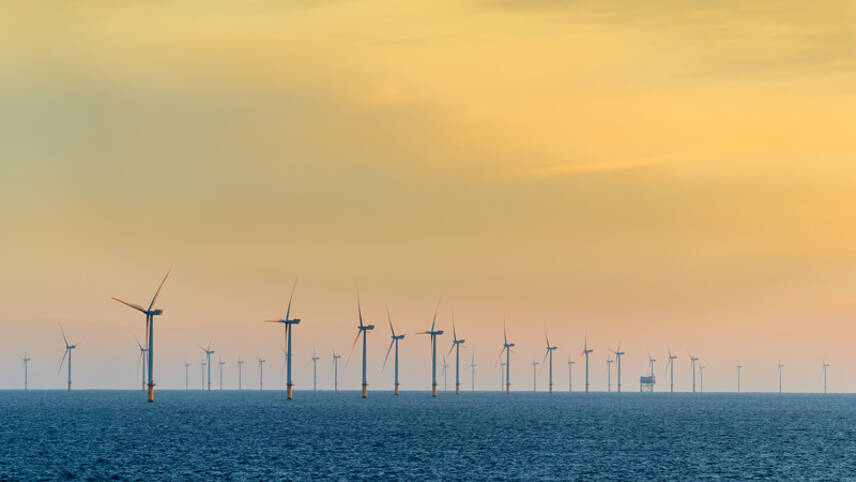Register for free and continue reading
Join our growing army of changemakers and get unlimited access to our premium content

Pictured: The Hornsea One wind farm. Image: Orsted
The warning is the headline of a new report published by the NAO on Wednesday (1 March) assessing the most cost-effective way for the UK to reach its power sector decarbonisation targets.
Back in October 2021, the Government outlined plans to end unabated gas-fired electricity generation by 2035. At that point, only nuclear, renewable energy, bioenergy and gas with carbon abatement should be online. This target was firmed up through the Energy Security Strategy last spring.
The NAO, like several other bodies have before, has warned that the UK is not guaranteed to deliver its 2035 ambition despite good progress historically in decarbonising the power sector.
It notes that the UK Government is planning for a 60% increase in electricity demand through to 2035, partly due to population growth but mainly due to increased electrification in sectors such as heating, transport and heavy industry. Meeting this increased demand, while also bringing online more intermittent renewable generation, will require major investment in grid upgrades, to an extend the NAO is not certain that the Government is planning for.
The NAO’s conclusion is that the Government has not, broadly, established a “critical path” to 2035. This conclusion is reached not only in regards to grid planning, but planning regarding flexible energy assets including battery and large-scale storage.
The Office also wants more information from the Government on how and why it has selected its low-carbon technologies of choice, and what it will do to roll out alternatives should plans need to be adapted. It notes that, even for preferred technologies such as offshore wind and nuclear, deployment will need to be faster than ever before. Accelerating deployment will require a fresh approach to planning and finance.
“Although power sector emissions have reduced significantly over the past three decades, [the Government] cannot be complacent about the challenges involved in decarbonising further while continuing to ensure a secure supply that meets the predicted electricity demand increases,” the NAO summarised in a statement. “This will require substantial investment in new capacity, alongside system-wide modernisation, and needs a joined-up approach to ensure changes happen in sequence and with coherence.”
New Department
The release of the report comes less than a month after the Government formed a new Department for Energy Security and Net-Zero. As Prime Minister Rishi Sunak had pledged during his leadership campaign, he divided the Department for Business, Energy and Industrial Strategy (BEIS), stating an intention to place more of a specific focus on the energy transition amid the ongoing price crisis.
The NAO is warning that, the longer this new department goes without a comprehensive energy transition plan, the higher the risk is that the transition will come with “greater than necessary costs”.
By the end of March, the Government is required to update its Net Zero Strategy, after the framework was ruled unlawful by the High Court last year. This update could be an opportunity for new commitments on power sector decarbonisation.
Chancellor Jeremy Hunt’s Budget next month also presents an opportunity for new energy investment from the public purse. Hunt could also implement new measures here to help unlock more private finance.
The most recent global ranking of clean energy investment markets from EY placed the UK in the top five, behind only the US, China and Germany. But the UK has faced a string of warnings in recent weeks that investors could be looking elsewhere in the near future, with the US and EU introducing new clean energy subsidies and with the UK implementing new levies on low-carbon generation.


The energy supply on which our civilisation depends should not reside with purely private interests.
just a simple comment.
Richard Phillips